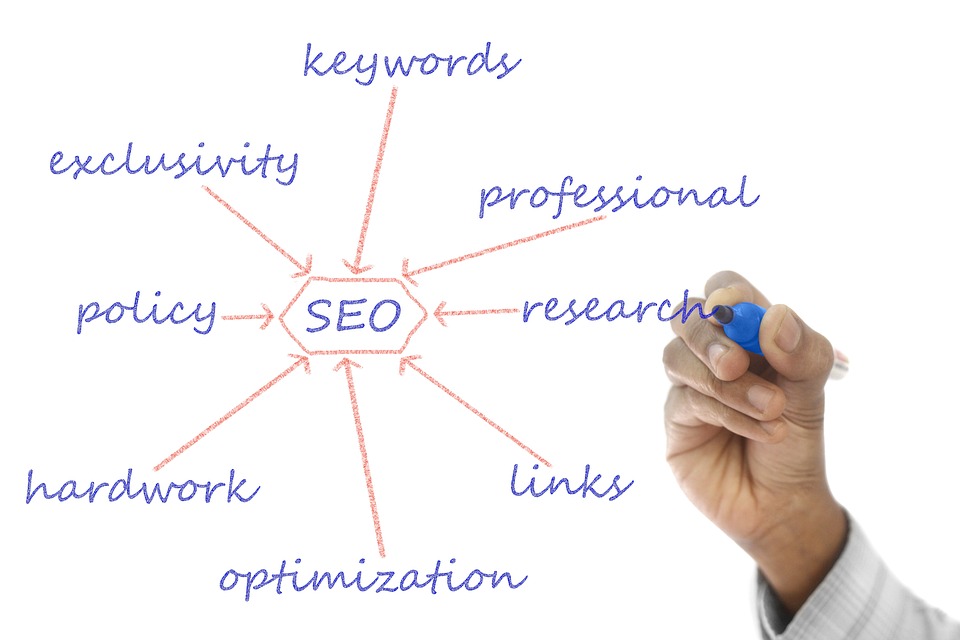Are you looking to boost your online presence and drive more traffic to your website? Look no further! In this ultimate guide, we will dive deep into the world of Search Engine Optimization (SEO) in Digital Marketing. Whether you are a beginner or a seasoned pro, this guide has got you covered with all the tips and tricks you need to know to master the art of SEO.
What is Search Engine Optimization (SEO)?
Search Engine Optimization, or SEO, is the process of optimizing your website to rank higher in search engine results pages (SERPs). By optimizing your website for search engines, you can increase your visibility online and drive more organic traffic to your site. SEO involves a combination of on-page and off-page strategies that work together to improve your website’s ranking in search results.
FAQs:
Q: What are the benefits of SEO in Digital Marketing?
A: SEO can help improve your website’s visibility online, drive more organic traffic to your site, increase your brand’s credibility and authority, and ultimately boost your revenue and sales.
Q: How long does it take to see results from SEO?
A: SEO is a long-term strategy, and it can take several months to see significant results. However, with consistent effort and optimization, you can start to see improvements in your website’s ranking within a few weeks.
Q: What are the different types of SEO?
A: There are three main types of SEO: on-page SEO, off-page SEO, and technical SEO. On-page SEO involves optimizing your website’s content and structure, while off-page SEO focuses on building backlinks and improving your site’s authority. Technical SEO involves optimizing your website’s technical aspects, such as site speed and mobile-friendliness.
Q: How can I improve my website’s SEO?
A: To improve your website’s SEO, you can start by conducting keyword research to identify relevant keywords for your industry. Then, optimize your website’s content, meta tags, and images with these keywords. Additionally, focus on building high-quality backlinks to your site and improving your website’s user experience.
Q: Is SEO important for all businesses?
A: Yes, SEO is important for all businesses, regardless of their size or industry. By optimizing your website for search engines, you can increase your online visibility, drive more traffic to your site, and ultimately grow your business.
Now that you have a better understanding of what SEO is and why it is important, let’s dive into some of the key strategies and best practices for optimizing your website for search engines.
Keyword Research:
One of the most important aspects of SEO is keyword research. Keywords are the words and phrases that people type into search engines to find information online. By conducting keyword research, you can identify relevant keywords for your industry and target them in your website’s content.
When conducting keyword research, it is important to consider the search volume and competition for each keyword. Aim to target keywords with high search volume and low competition to maximize your chances of ranking higher in search results.
On-Page SEO:
On-page SEO involves optimizing your website’s content and structure to improve its visibility in search results. Some key on-page SEO strategies include:
– Optimizing your website’s meta tags, including title tags, meta descriptions, and header tags
– Using relevant keywords throughout your website’s content
– Creating high-quality, engaging content that provides value to your audience
– Optimizing your website’s images with descriptive alt text
Off-Page SEO:
Off-page SEO involves building backlinks to your website from other high-quality websites. Backlinks are an important ranking factor for search engines, as they indicate to search engines that your website is authoritative and relevant.
To build backlinks to your website, you can reach out to other website owners and bloggers in your industry and ask them to link to your site. Additionally, you can create high-quality content that other websites will want to link to naturally.
Technical SEO:
Technical SEO involves optimizing your website’s technical aspects to improve its performance in search results. Some key technical SEO strategies include:
– Improving your website’s site speed
– Ensuring your website is mobile-friendly
– Creating a sitemap to help search engines crawl and index your site
– Optimizing your website’s URL structure
By implementing these key SEO strategies and best practices, you can improve your website’s visibility in search results and drive more organic traffic to your site. Remember that SEO is a long-term strategy, and it requires consistent effort and optimization to see significant results. With dedication and perseverance, you can master the art of SEO and take your digital marketing efforts to the next level.









